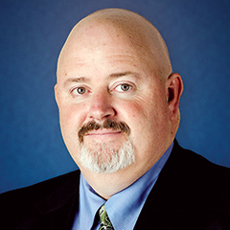
Providers will need to undertake a drastic culture change and refocus on data to prepare for upcoming post-acute payment changes, an expert shared during a McKnight’s Super Tuesday webinar.
“This transition from fee-for-service payments to advanced payment models (APMs) is not going to be for the faint of heart,” said Chris Murphy, CPA, a partner at BKD Consulting.
Data will be critical as new APMs, including bundled payments and accountable care organizations, are tested out by the Centers for Medicare & Medicaid Services. Facilities that know their Nursing Home Compare data, as well as the public data for their competitors and even home health agencies, will have a leg up on landing care coordination partnerships with hospitals.
“If your scores aren’t competitive in your marketplace, you need to address those things head on and early on,” Murphy said. “Because the risk of not doing so is not even getting a seat at the table.”
Each facility’s data “story” should have cost analysis, payments, length of stay, outcomes and discharge site for specific diagnosis codes, comorbidities and physicians. The skilled nursing facilities that use data to positively differentiate themselves will perform best under advanced payment models, Murphy said.
Once providers have their data story ready to share, Murphy advises sharing it with the hospital’s chief nursing officer, chief financial officer or other high-ranking hospital official who can “steer you down” to other decision-makers.
As payment models evolve, Murphy encouraged avoiding thinking of patients as “mine” only for the time they are in a skilled nursing facility. Instead, providers have to focus on the continuum of care through transition points. Providers who bring that mindset will be highly valued in care partnerships, Murphy said.
An archived version of the webinar can be viewed here.




